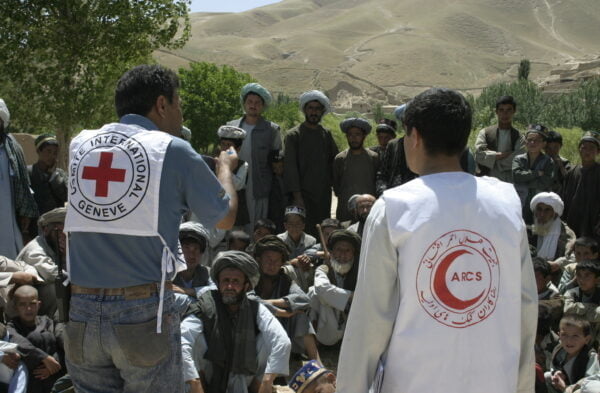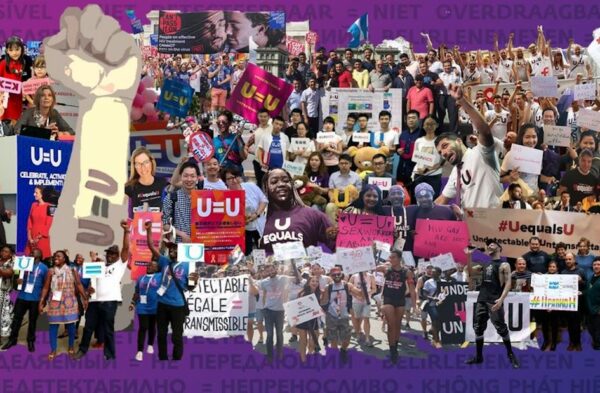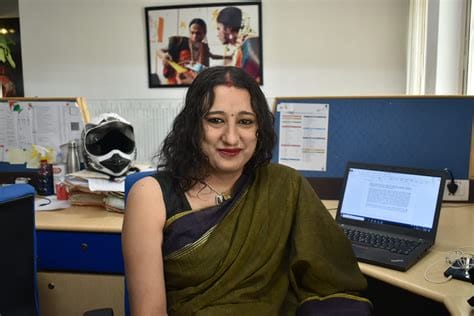Ressources
PCB Meetings
Toutes les PCB Meetings >56ème PCB Summary Bulletin | 9 juillet 2025
55ème NGO Report | 22 novembre 2024
55ème PCB Summary Bulletin | 13 janvier 2025
54ème PCB Summary Bulletin | 17 juillet 2024
53ème NGO Report | 30 juin 2023
53ème PCB Summary Bulletin | 26 janvier 2024
52ème PCB Summary Bulletin | 25 juillet 2023
NGO Reports
Toutes les NGO Reports >NGO Report of the 55ème PCB Meeting | 22 novembre 2024
2024 NGO Report: « Breaking the chains: supporting community leadership and human rights for a sustainable HIV response »
The NGO Delegation’s Report to the PCB will focus on the importance of involving communities – key and marginalized populations, people living with HIV, and other communities hard hit by the AIDS pandemic – in the HIV response. A topic that has long been discussed by multilateral organizations, donors, national governments, and of course, communities themselves.
NGO Report of the 53ème PCB Meeting | 30 juin 2023
People living with HIV during humanitarian emergencies
This year’s report to the PCB will focus on ‘People living with HIV during humanitarian emergencies’. The last couple of years have seen several different humanitarian emergencies arising from various parts of the world. Some of the most notable ones include the Russo-Ukrainian War, the ongoing conflict in Sudan, and the catastrophic hunger crisis in Somalia. These crises create gaps in the global response to HIV/AIDS for people living with HIV. You can now download and read the report.
NGO Report of the 51ème PCB Meeting | 22 novembre 2022
Undetectable = Untransmittable = Universal Access (U=U=U): A foundational, community-led global HIV health equity strategy
The 2022 NGO report focuses on the untapped potential of U=U as a community-led, HIV health equity strategy to improve the health and quality of life of people living with HIV and contribute to the global treatment targets by advancing universal access to antiretroviral therapy, diagnostics and sustained care, while reducing HIV transmission.
PCB Summary Bulletin
Toutes les PCB Summary Bulletin >56ème PCB Meeting | 9 juillet 2025
NGO Delegation’s Summary Bulletin & Report Back Webinarsof the 56ème PCB Meeting
Against the backdrop of a deepening funding crisis and institutional restructuring, the Board focused on key agenda items including the annotated outline of the Global AIDS Strategy 2026–2031, revisions to the Joint Programme Operating Model, strategic human resources updates, and the latest UBRAF performance report.
55ème PCB Meeting | 13 janvier 2025
NGO Delegation’s Summary Bulletin & Report Back Webinarsof the 55ème PCB Meeting
Kenya hosted the 55th UNAIDS Programme Coordinating Board (PCB) meeting in Nairobi from 10 to 12 December 2024, marking the first time in 18 years that the PCB convened in Africa. This historic event underscored the continent’s centrality in the global HIV response, with Kenya also organizing five field visits for delegates on 9 December. These visits offered firsthand insight into the challenges and successes of local HIV programs, highlighting the critical role of community-driven initiatives in shaping effective responses.
54ème PCB Meeting | 17 juillet 2024
NGO Delegation’s Summary Bulletin & Report Back Webinarsof the 54ème PCB Meeting
The Summary Bulletin contains the following sections: Report of the Executive Director, Report by the Chair of the Committee of Cosponsoring Organizations, Leadership in the AIDS response, Follow-up to the thematic segment from the 53rd Programme Coordinating Board meeting, Unified Budget, Results and Accountability Framework (UBRAF) 2022-2026; Performance Monitoring Reporting, Unified Budget, Results and Accountability Framework (UBRAF) 2022-2026; Financial Reporting, Update on strategic human resources management issues, Statement by the representative of the UNAIDS Secretariat Staff Association, Independent Organizational Oversight Reports and Management Response, 55th meeting of the Programme Coordinating Board and Thematic Segment: Testing and HIV.
News & Blog
Toutes les News & Blog >Actualités | 15 juillet 2025
Help Shape the 2025 NGO Report: Share Your Voice
The NGO Delegation to the UNAIDS Programme Coordinating Board is gathering input for our 2025 NGO Report on community-led, integrated HIV healthcare service delivery and we need your voice!
Blog | 15 juillet 2025
WE WERE WINNING. NOW WE’RE BLEEDING!
“The global AIDS response is collapsing—not because we lack solutions, but because we’ve abandoned the will to act”.
Actualités | 24 juin 2025
NGO Delegation Statement on the Development of the Global AIDS Strategy 2026 to 2031
The Global AIDS Strategy 2026-2031 must match today’s urgency with clarity, ambition, and a firm commitment to the communities who continue to drive the HIV response towards success – and who will pay the highest price if it fails. We stand ready to lead and expect the Strategy to stand with us.
Actualités | 18 juin 2025
Introducing Amrita Sarkar: Newly Selected Delegate for the NGO Delegation
We are pleased to introduce Amrita Sarkar, a dedicated and experienced change-maker in the field of transgender persons’ wellbeing and HIV advocacy, as the newly selected NGO Delegate to participate in the upcoming PCB
Blog | 22 mai 2025
Listening, Waiting, Speaking: HIV Advocacy at the Margins of UNPFII
After recovering from two weeks of full-day plenary sessions and side events at the United Nations Permanent Forum on Indigenous Issues (UNPFII) hosted in different locations across New York City and often scheduled for the same time, I remain committed to the need for UNAIDS and their co-sponsoring UN agencies, country governments, the private sector, community leaders and all stakeholders to continue to work diligently toward achieving the UN’s Sustainable Development Goal (SDG) 3.3 where one of the critical targets is the elimination of HIV as a public health threat by 2030.











